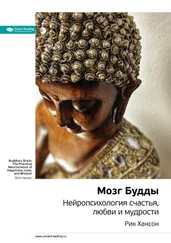Bryant, Fred. B., Colette M. Smart, Scott P. King. Using the Past to Enhance the Present: Boosting Happiness Through Positive Reminiscence // Journal of Happiness Studies. 2005. 6. P. 227–260.
Bryant, Fred B., Joseph Veroff. Savoring: A New Model of Positive Experience. Mahwah, New Jersey: Lawrence Erlbaum Associates, Inc., 2007.
Burgdorf, Jeffery, Jaak Panksepp. The Neurobiology of Positive Emotions // Neuroscience and Biobehavioral Reviews. 2006. 30. P. 173–187.
Calder, Andrew J., Andrew D. Lawrence, Andrew W. Young. Neuropsychology of Fear and Loathing // Nature. 2001. 2. P. 353–363.
Campbell, Stephanie, Michael Marriott, Claude Nahmias, Glenda M. MacQueen. Lower Hippocampal Volume in Patients Suffering from Depression: A MetaAnalysis // American Journal of Psychiatry. 2001. 161 (4). P. 598–607.
Chida, Yoichi, Andrew Steptoe. Positive Psychological Well-Being and Mortality: A Quantitative Review of Prospective Observational Studies // Psychosomatic Medicine. 2008. 70 (7). P. 741–756.
Choi, Jung-Kyoo, Bowles, Samuel. The Coevolution of Parochial Altruism and War // Science. 2007. 318. P. 636–640.
Christoffel, Daniel J., Sam A. Golden, Scott J. Russo. Structural and Synaptic Plasticity in Stress-Related Disorders // Reviews in Neurosciences. 2011. 22 (5). P. 535–549.
Cohn, Michael A., Barbara L. Fredrickson, Stephanie L. Brown, Joseph A. Mikels, Anne M. Conway. Happiness Unpacked: Positive Emotions Increase Life Satisfaction by Building Resilience // Emotion. 2009. 9. P. 361–368.
Critchley, Hugo D. Neural Mechanisms of Autonomic, Affective, and Cognitive Integration // Journal of Comparative Neurology. 2005. 493. P. 154–166. Critchley, Hugo D., Yoko Nagai. How Emotions Are Shaped by Bodily States // Emotion Review. 2012. 4 (2). P. 163–168.
Cunningham, William A., Tobias Brosch. Motivational Salience: Amygdala Tuning from Traits, Needs, Values, and Goals // Current Directions in Psychological Science. 2012. 21 (1). P. 54–59.
Cunningham, William A., Tabitha Kirkland. The Joyful, Yet Balanced Amygdala: Moderated Responses to Positive But Not Negative Stimuli in Trait Happiness // Social Cognitive and Affective Neuroscience. 2013. April 5. e-pub ahead of print.
Cunningham, William A., Carol L. Raye, Macia K. Johnson. Neural Correlates of Evaluation Associated with Promotion and Prevention Regulatory Focus // Cognitive, Affective, and Behavioral Neuroscience. 2005. 5 (2). P. 202–211.
Decety, Jean, Philip L. Jackson. The Functional Architecture of Human Empathy // Behavorial and Cognitive Neuroscience Reviews. 2004. 3. P. 71–100.
Decety, Jean, Margarita Svetlova. Putting Together Phylogenetic and Ontogenetic Perspectives on Empathy // Developmental Cognitive Neuroscience. 2011. 2 (1). P. 1–24.
Diener, Ed, Micaela Y. Chan. Happy People Live Longer: Subjective WellBeing Contributes to Health and Longevity // Applied Psychophysiology. 2011. 3 (1). P. 1–43.
Duman, Ronald S., George K. Aghajanian. Synaptic Dysfunction in Depression: Potential Therapeutic Targets // Science. 2012. 338. P. 68–72.
Dusek, Jeffery A., Hasan H. Out., Ann L. Wohlhueter, Manoj Bhasin, Luiz F. Zerbini, Marie G. Joseph, Herbert Benson, Towia A. Libermann. Genomic Counter-Stress Changes Induced by the Relaxation Response // PLoS One. 2008. 3. e2576.
Ecker, Bruce, L. Hulley. Depth Oriented Brief Therapy: How to Be Brief When You Were Trained to Be Deep, and Vice Versa. San Francisco: Jossey-Bass, 1996.
Ecker, Bruce, Brian Toomey. Depotentiation of Symptom-Producing Implicit Memory in Coherence Therapy // Journal of Constructivist Psychology. 2008. 21 (2). P. 87–150.
Efferson, Charles, Rafael Lalive, Ernst Fehr. The Coevolution of Cultural Groups and Ingroup Favoritism // Science. 2008. 321. P. 1844–1849.
Emmons, Robert. Thanks! How the Science of Gratitude Can Make You Happier. New York: Houghton Mifflin Harcourt, 2007.
Emmons, Robert A., Michael McCullough. Counting Blessings Versus Burdens: An Experimental Investigation of Gratitude and Subjective Well-Being in Daily Life // Journal of Personality and Social Psychology. 2003. 84 (2). P. 377–389. Emmons, Scott W. The Mood of a Worm // Science. 2012. 338. P. 475–476. Esch, Tobias, George B. Stefano. The Neurobiology of Stress Management // Neuroendocrinology Letters. 2010. 31 (1). P. 19–39.
Fagley, Nancy. Appreciation Uniquely Predicts Life Satisfaction Above Demographics, the Big 5 Personality Factors, and Gratitude // Personality and Individual Differences. 2012. 53. P. 59–63.
Fehr, Ernst. Human Behaviour: Don't Lose Your Reputation // Nature. 2004. 432. P. 449–450.
Fehr, Ernst, Bettina Rockenbach. Human Altruism: Economic, Neural, and Evolutionary Perspectives // Current Opinion in Neurobiology. 2004. 14 (6). P. 784–790.
Feldman, Daniel. Synaptic Mechanisms for Plasticity in Neocortex // Annual Review of Neuroscience. 2009. 32. P. 33–55.
Feldman, Greg C., Jutta Joormann, Sheri L. Johnson. Responses to Positive Affect: A Self-Report Measure of Rumination and Dampening // Cognitive Therapy and Research. 2008. 32 (4). P. 507–525.
Folkman, Susan, Judith Moskowitz. Positive Affect and the Other Side of Coping // American Psychologist. 2000. 55. P. 647–654.
Fredrickson, Barbara. Positivity: Top-Notch Research Reveals the 3 to 1 Ratio That Will Change Your Life. New York: Three Rivers Press, 2009.
Fredrickson, Barbara L., Michael A. Cohn, Kimberly A. Coffey, Jolynn Pek, Sandra M. Finkel. Open Hearts Build Lives: Positive Emotions, Induced Through Loving-Kindness Meditation, Build Consequential Personal Resources // Journal of Personality and Social Psychology. 2008. 95 (5). P. 1045–1062.
Fredrickson, Barbara, Robert Levenson. Positive Emotions Speed Recovery from the Cardiovascular Sequelae of Negative Emotions // Psychology Press. 1998. 12. P. 191–220.
Fredrickson, Barbara L., Michele M. Tugade, Christian E. Waugh, Gregory R. Larkin. What Good Are Positive Emotions in Crisis? A Prospective Study of Resilience and Emotions Following the Terrorist Attacks on the U.S. on 9/11/01 // Journal of Personality and Social Psychology. 2003. 84 (2). P. 365–376. Fry, Douglas P. Life Without War // Science. 2012. 336. P. 879–884.
Gabbard, Glen O. A Neurobiologically Informed Perspective on Psychotherapy // British Journal of Psychiatry. 2000. 177. P. 117–122.
Gable, Shelly L., Harry T. Reis, Emily A. Impett, Evan R. Asher. What Do You Do When Things Go Right? The Intrapersonal and Interpersonal Benefits of Sharing Positive Events // Journal of Personality and Social Psychology. 2004. 87 2). P. 228–245.
Garavan, Hugh, Cara J. Pendergrass, Thomas Ross, Elliot A. Stein, Robert Risinger. Amygdala Response to Both Positively and Negatively Valenced Stimuli // Neuroreport. 2001. 12 (12). P. 2779–2783.
Юджин Джендлин. Фокусирование. М.: Корвет, 2016.
Germer, Christopher. The Mindful Path to Self-Compassion: Freeing Yourself from Destructive Thoughts and Emotions. New York: The Guilford Press, 2009. Gerstner, Wulfram , Henning Sprekeler, Gustavo Deco. Theory and Simulation in Neuroscience // Science. 2012. 338. P. 60–65.
Gilbert, Paul. The Compassionate Mind: A New Approach to Life's Challenges. Oakland, Calif.: New Harbinger Publications, Inc., 2010.
Gilbert, Paul. Introducing Compassion-Focused Therapy // Advances in Psychiatric Treatment. 2009. 14. P. 199–208.
Читать дальше
Конец ознакомительного отрывка
Купить книгу












